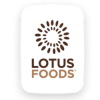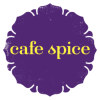After more than four years running Nestlé's water portfolio, Maurizio Patarnello insists he's not trying to replicate many of the traits that made the Switzerland company's offerings in the space so successful.
As CEO of upstart Flow Beverage, the seasoned water executive insists times have changed for the world's most popular liquid. While consumers are more willing than ever to turn to water, they increasingly care about how it tastes, whether it provides functional benefits and the sustainability of the material used to make its packaging.
In a commoditized category like water, Patarnello said Flow's secret for growth and maintaining its relevance center on being what the big players are not: different.
"We don't underestimate them," Patarnello, who was employed by Nestlé for 15 years, said about the big water giants in a recent interview. "But we don't try to go head to head against them. If we had to come here just as a 'me too,' our chances would be very limited. We try to bring something new into the market."

Flow was founded in 2014 after founder Nicholas Reichenbach saw a pile of discarded plastic water bottles as he left the Burning Man festival and decided to find a solution.
His answer: Swap the plastic bottles for more sustainable Tetra Pak cartons, and provide a value add with naturally sourced, alkaline water. Today, Flow is one of the fastest-growing companies in its space. It also sells the liquid with collagen and trendy flavors, such as Blackberry + Hibiscus and Cucumber + Mint. Flow is planning to launch a vitamin water this summer.
In addition to its packaging, Flow also is a certified B-Corp, a certification that tells consumers a company is adhering to standards and values that resonate with them such as transparency and accountability.
Its offerings are sold in nearly 26,000 stores — an increase of 5,000 locations in just the past 12 months alone — including at Walmart, CVS and Whole Foods. Sales are also booming. The company increased revenue more than sevenfold in only three years, reaching $34.4 million in its 2021 fiscal year ending Oct. 31.
Even as growth soars, losses are doing the same, increasing to $50.2 million in the most recent year, due in part to a reverse merger that brought the company public, up from $16.1 million in 2018.

While Flow differentiates its brand by meeting consumer demand for sustainability, functionality and premiumization — attributes that Patarnello said had upended the category in recent years — these drivers took a backseat to safety during the pandemic.
Flow will be ideally positioned to benefit not only as these values start gaining momentum again but also from the additional shelf space it has gained, he said. Flow's branded products are forecast to grow net revenue by 45% to 55% in its 2022 fiscal year. The company predicts that losses, before certain charges are taken, will be cut in half.
"Initially, the sustainable image is what is getting people close to our brand to try it," Patarnello said. "And then, of course, people love the taste and see the benefit of it being an alkaline water and consuming it over some time."
But Flow, which is focusing its growth in the western and eastern U.S., as well as in Texas where demand is the highest, also is finding that many of the things that helped it stand out are increasingly being offered by other small brands and the large beverage giants.
Water in cartons has become popular with upstarts such as Just Water, Boxed Water is Better, Icebox Water and Rethink Water, which are joining Flow in offering more environmentally friendly paper-based cartoons.
Major bottled water manufacturers such as Danone, PepsiCo, Nestlé and Coca-Cola are investing in packaging alternatives like aluminum and water stations to encourage the use of reusable containers, and are pledging to increase the amount of recycled plastic in their bottles.
Last September, Danone's Evian bottled water brand unveiled a new recycled plastic prototype bottle using technology from Loop Industries. The process allows all types of PET plastic waste, including material taken from things like gym bags or flip flops that would otherwise be thrown out, to be turned into plastic bottles.
The largest players are also strategizing to insulate themselves from the stagnating sales around their traditional plain waters with a focus on premiumization. Danone recently targeted Evian water as one of the brands it could build upon.
In 2021, Nestlé sold its slow-growing North American bottled water business, including brands such as Poland Spring, Deer Park and Pure Life, for $4.3 billion. The deal was trumpeted as a way for the CPG giant to focus on its international premium brands including Perrier and San Pellegrino, as well as local natural mineral waters, healthy hydration products and functional water.
Since the announcement, Nestlé purchased Essentia Water, a premium functional brand, for an undisclosed amount. Essentia is the leading alkaline water brand and the No. 1 selling bottled water in the natural channel, Nestlé said.
In response to the mounting competition, Patarnello said Flow continues to focus "on the fundamentals that have always distinguished it as a pioneer and contributed to its growth." He added the company is gathering "consumer insights to ensure our products and programs are aligned with our customers and their values."
With Flow's presence in premium water and fast pace of growth in recent years, the company could make a tantalizing acquisition target. Its market cap of about $40 million means a deep-pocketed company could easily buy it without the deal having a major impact on its balance sheet.
Still, Patarnello said Flow isn't working to be acquired. "There may be a company that shows interest in us, but we are focusing on growing our brand," he said.























